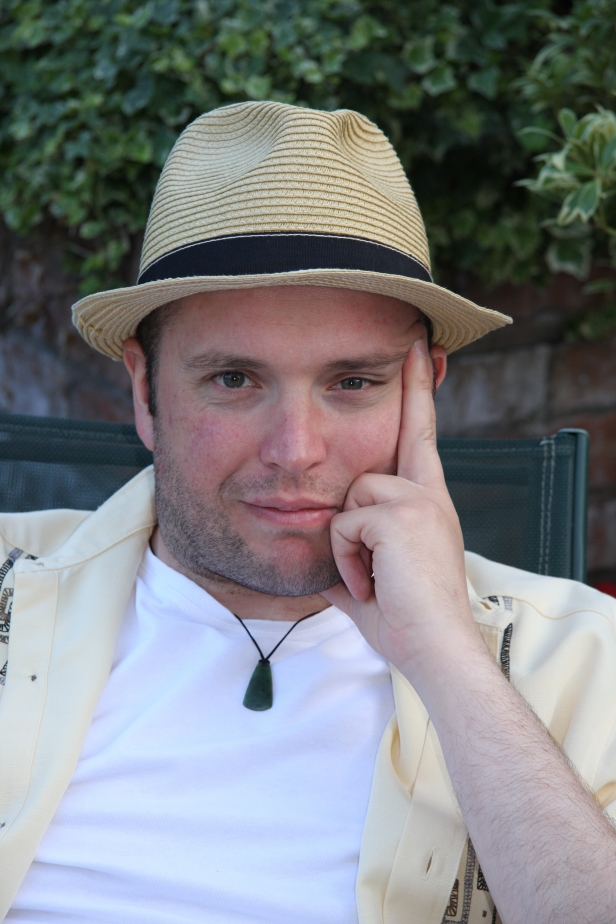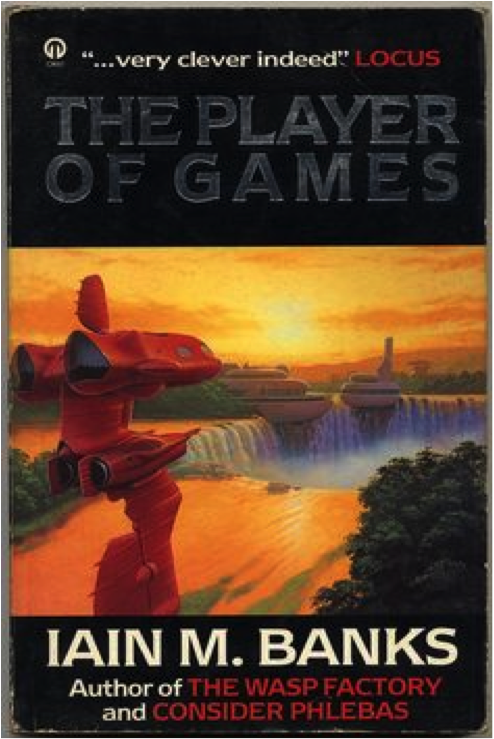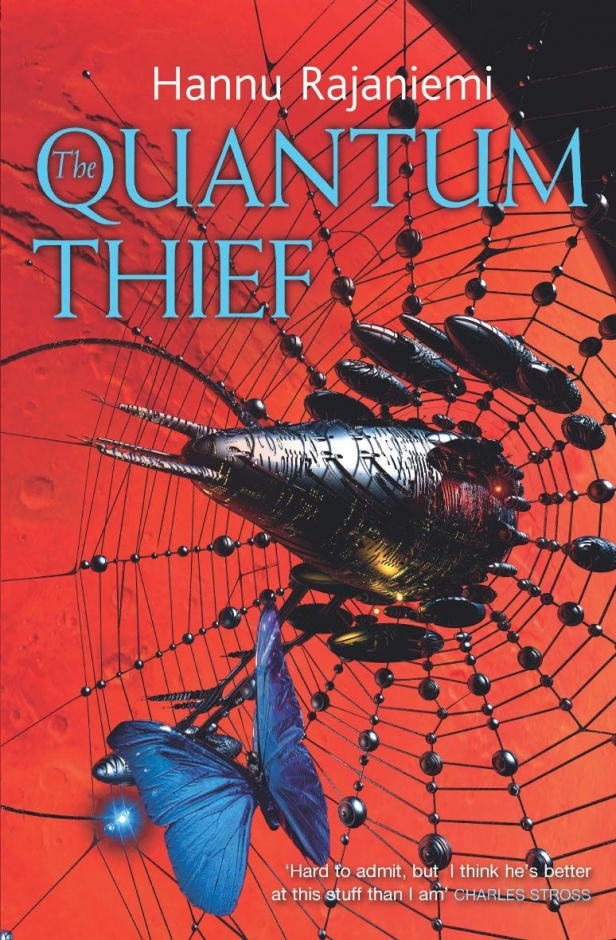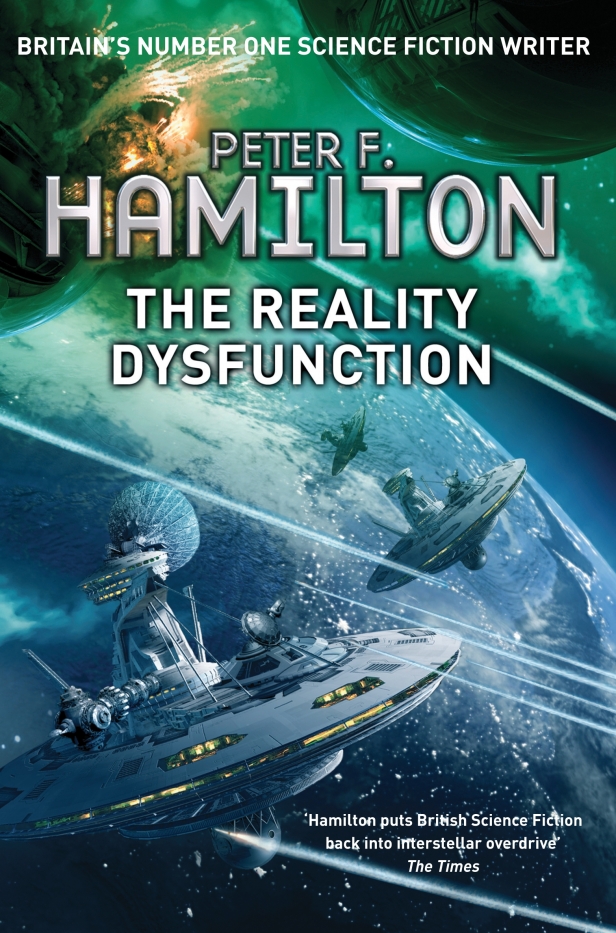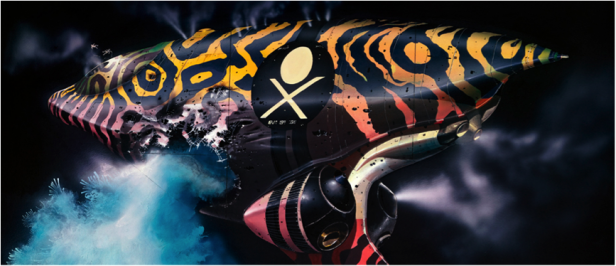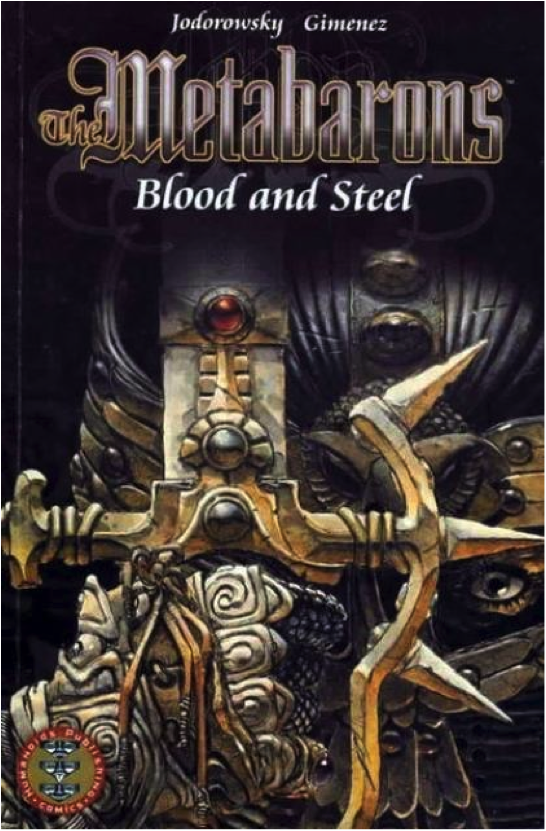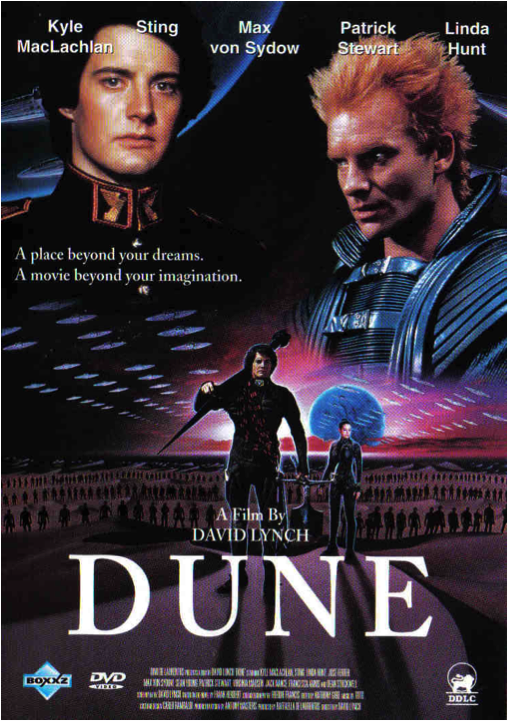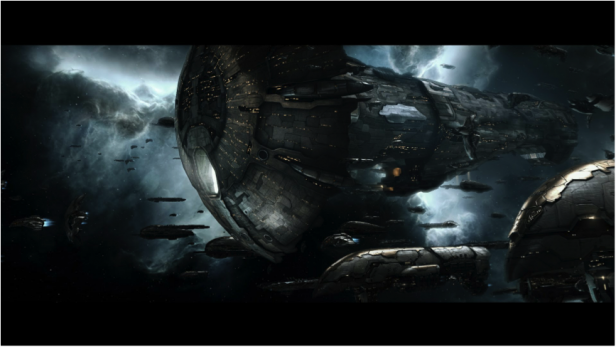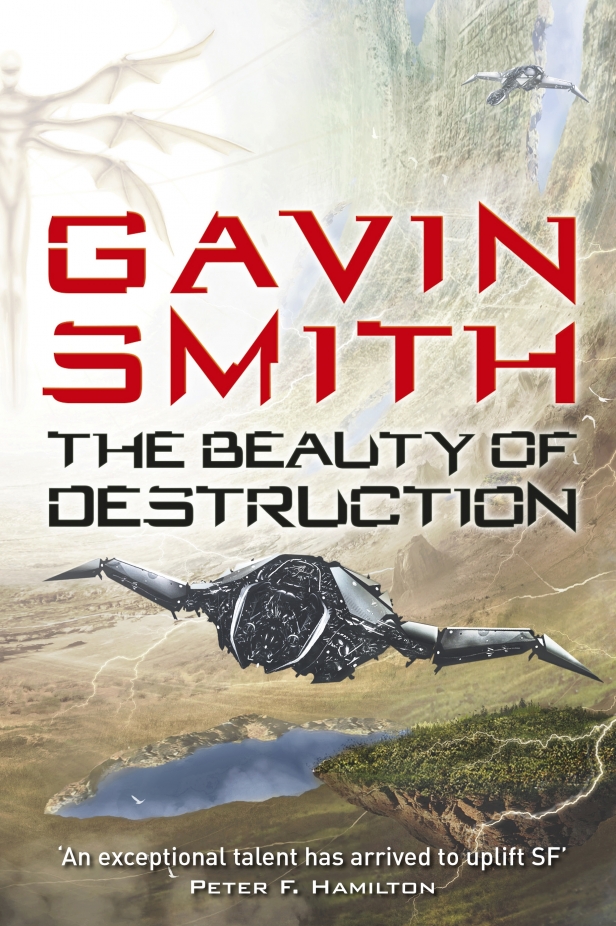Getting Your Space Opera On
THE BEAUTY OF DESTRUCTION is out on Thursday the 21st of January. It’s the last book in the trilogy that started with AGE OF SCORPIO and was continued in A QUANTUM MYTHOLOGY. A third of the story has been set in Iron Age Britain, another third in the modern day. The final third of the story is set in the far future and is unashamedly a SPACE OPERA. No mucking around: huge ships and habitats, weird alien races, many of whom were human once, and all the attendant shenanigans of space battles, god-like technology and bizarre societies.
In the run up to the release of A Quantum Mythology I wrote about some of my favourite Iron Age stories. So for The Beauty of Destruction I thought I would talk about some of my favourite Space Operas. It’s by no means exhaustive – there are some glaring omissions – but I’ve concentrated on the Space Operas that most heavily influenced the writing of the Age of Scorpio trilogy.
Books first! In no particular order:
The Player of Games – Iain M. Banks
Sometimes there are times in your life when younger you needs a slap from time-travelling older you. Despite being a huge Iain Banks fan, for some reason I eschewed his SF stuff. I’m not sure why. There was probably some angsty, teenaged reason (I suspect I wanted pure cyberpunk. It was a long time ago). As a result I came to the Culture quite late.
I enjoy all the Culture books and I suspect they’re one of the reasons that most fictional futures are so bleak. It doesn’t feel like Banks has left us much to say about star-spanning utopias.
Why The Player of Games over so many other excellent books? Good question. I like the intrigue, I like that it’s low key against a backdrop of continent-sized ships with demi-god transhumans and actual god-like AIs, and I think it appeals to the gamer in me.
(One of the core ideas behind the Age of Scorpio trilogy is the question: what would happen if humanity had access to near-Culture level resources but still insisted on behaving like massive dicks?)
The Quantum Thief – Hannu Rajaniemi
WHY AM I DOING THIS TO MYSELF!?! See the bit on the cover that says: “SF debut of the year?” Yeah? Guess who was the other Gollancz SF debut that year? For how I really feel about this please see my not-at-all-legally actionable blog: Hannu Rajaniemi is Not a Real Man and I Can Prove It!
The Quantum Thief is one of those books that you read and realise that it’s significant, that it’ll bring change within the genre, that it’s ground breaking. It’s original. Very little is. It’s not messing about SF and it goes after the big concepts unashamedly, and I mean all of them. Incredibly intelligent – which is what you’d expect from someone with a physics doctorate – perhaps almost too much at times (you’ll want easy access to Wikipedia whilst you’re reading it, well if you’re anything like me anyway). Most importantly, however, it’s beautiful, beautiful prose. I get that it’s not to everyone’s taste. Hannu, bless him, makes few concessions to his reader. I suspect this is in part because he has high expectations of them, but frankly if you like SF and you haven’t already tried this, then you should.
The Fractal Prince is equally as good, and to my shame I haven’t got around to the Causal Angel yet, though it’s staring at me from the shelf. Also Hannu’s Collected Fiction does exactly what a good short story collection should do, it sends you shooting off in thousands of directions with new ideas.
The Reality Dysfunction – Peter F. Hamilton
I think if someone put a gun to my head (or bought me a whisky) and demanded to know what my favouritist SF novel was, I would be forced, or gently coaxed, to tell them it was The Reality Dysfunction. It was this book that got me reading space opera.
What do I like about it? It’s difficult to put my finger on one thing. It’s well written, and despite its size it rattles along at a fair old pace, the detailed world building (I know it’s a dirty word these days!) creates an awesome and believable universe and the plot’s imaginative. I think it’s just so much fun and frankly the most SF of SF books (as weird as that may sound).
Simply put, if you like space opera then there’s absolutely no reason not to have read this book.
Art (“Art?!” I hear you cry. “Yes, art!” I reply.):
Chris Foss:
Or Chris ‘Motherfucking’ Foss(!) as I imagine he’s never called. Influential SF cover artist, he’s illustrated everyone from Asimov to an SF writer whose name begins with Z which escapes me at the moment. If a perusal of his artwork looks familiar to you then that’s probably because he worked as a concept artist on that low budget indie film, Guardians of the Galaxy. Incidentally, the above illustration was concept work for surrealist filmmaker Alejandro Jodorowsky’s aborted attempt to film Dune in the 70s. (It would have had Pink Floyd on the soundtrack! Mourn for this film that was never made!) The picture is of a damaged smuggler’s ship leaking Spice after a pirate attack. (Look out for the documentary Jodorowsky’s Dune, it’s a fascinating story and some extraordinary people were involved.)
Chris Foss’s book Hardware was a major source of inspiration for the Age of Scorpio trilogy, and lay open close to where I was typing for much of the After the Loss sections.
Which brings me to Comics:
Remember I mentioned Jodorowsky?
The Metabarons – Alejandro Jodorowsky – Writer, Juan Giménez – Artist
Oddly there don’t seem to be that many space opera comics about. Even 2000AD, a science fiction comic, doesn’t really seem to run space opera stories. The only one I can think of is Ace Trucking Co. (please let me know if there are others), though I can’t deny the influence of Strontium Dog on the Age of Scorpio trilogy. Saga is another good space opera but I came to it a bit too late for it to be an influence. I’ve noticed that there have been a few more recently that I need to check out.
So what is/are the Metabarons? Er… well, that’s kind of difficult to explain. It’s a space opera that reads like a Greek Tragedy written by Frank Herbert after he’s taken a great deal mescaline. Really a lot of mescaline. I mean if he was badly fucked up.
It’s the dynastic tale of a family of super-hard aristocratic mercenaries, called the Metabarons and… well, it’s what happens when a frustrated surrealist film maker doesn’t get to make his vision of Dune. (I mean he cast Salvador Dali as the Emperor!) The ideas have to come out somewhere. And by ideas I mean familial mutilation, aerial births because the mother has been shot with anti-gravity bullets, penis controlled space ships and enough incest to make George R.R. Martin blush.
The Metabarons were a significant inspiration for the Elite in the Age of Scorpio trilogy, make of that what you will.
Film:
Film is a tricky one. The few good space opera films I can think of – Star Trek the Motion Picture, Serenity, and low-budget indie flick Guardians of the Galaxy – are all excellent but weren’t really an influence on the Age of Scorpio trilogy. (Though I wish I’d thought of mining the enormous head of a dead god for its cerebral fluid). Jupiter Ascending (none of your nonsense now) in design is closer to how I see the After the Loss sections looking but I’d pretty much finished writing by the time it came out, and I can’t think of any other good space opera films. Nope. Not-a-one.
Well I suppose there’s:
Dune – Directed by David Lynch
An adaption of the classic Frank Herbert eco-SF novel of the same name, this film is a hot mess. It’s all over the place. Over budget, heavily interfered with by the studio, and critically panned. It’s still wonderful (and by far and away the best thing that Sting’s ever done).
Yes I know all the problems with the film but its baroque-noir style is beautiful and it has people riding giant worms to war! What more do you want!? It was also very different to the other SF films being made at the time.
And finally Games:
Eve Online – CCP:
Okay I have a confession to make. I don’t play Eve Online. Despite having written tie-in fiction I don’t play computer games that much. I think it’s a fascinating medium. I enjoy working with games designers. I think it has the potential to be the art form of the 21st Century, and I think that they look lovely, but I just don’t have the time to play.
Arguably I should have mentioned Eve in the art section. I own two books of concept artwork for Eve, both of which, like Hardware by Chris Foss, were often open and nearby when I was writing the After the Loss sections of the trilogy. There are other SF games that look amazing, like Elite: Dangerous (which I have played), but Eve just fitted the kind of aesthetic and scale I saw in my mind’s eye for the Age of Scorpio trilogy.
I also spent some time watching their promo films. This one is my favourite, in part because of Junkie XL featuring Sasha tune.
Eclipse Phase – Posthuman Studios:
The cover of the book below shows a monkey knife fight with an uplifted octopus, how much do I really need to say about this game? You’re playing it, right?
Eclipse Phase somehow manages to be a post apocalyptic survival game set in an arguably post scarcity society, an interesting balancing act. A technological singularity gone horribly wrong drives transhumanity off of Earth, and the survivors are forced to colonise the solar system. It mixes cutting edge SF, heavily influenced by the likes of Al Reynolds, Richard Morgan, Kim Stanley Robinson, Charles Stross and the previously mentioned Hannu, with just a hint of Lovecraftian cosmic horror, and it’s brilliant. The setting is so well realised that I’m more than a little envious, and would love to write in it. The only problem with the game is that you need players who are very conversant with contemporary SF to get the best out of it.
Anyway, those are the space operas that most heavily influenced the Age of Scorpio trilogy and I thoroughly recommend all of them.
www.gavingsmith.com
@gavingsmith
https://www.facebook.com/gavin.smith.378
The Beauty Of Destruction by Gavin G Smith is out now from Gollancz. Keep up with the latest genre news with the new issue of SciFiNow.
